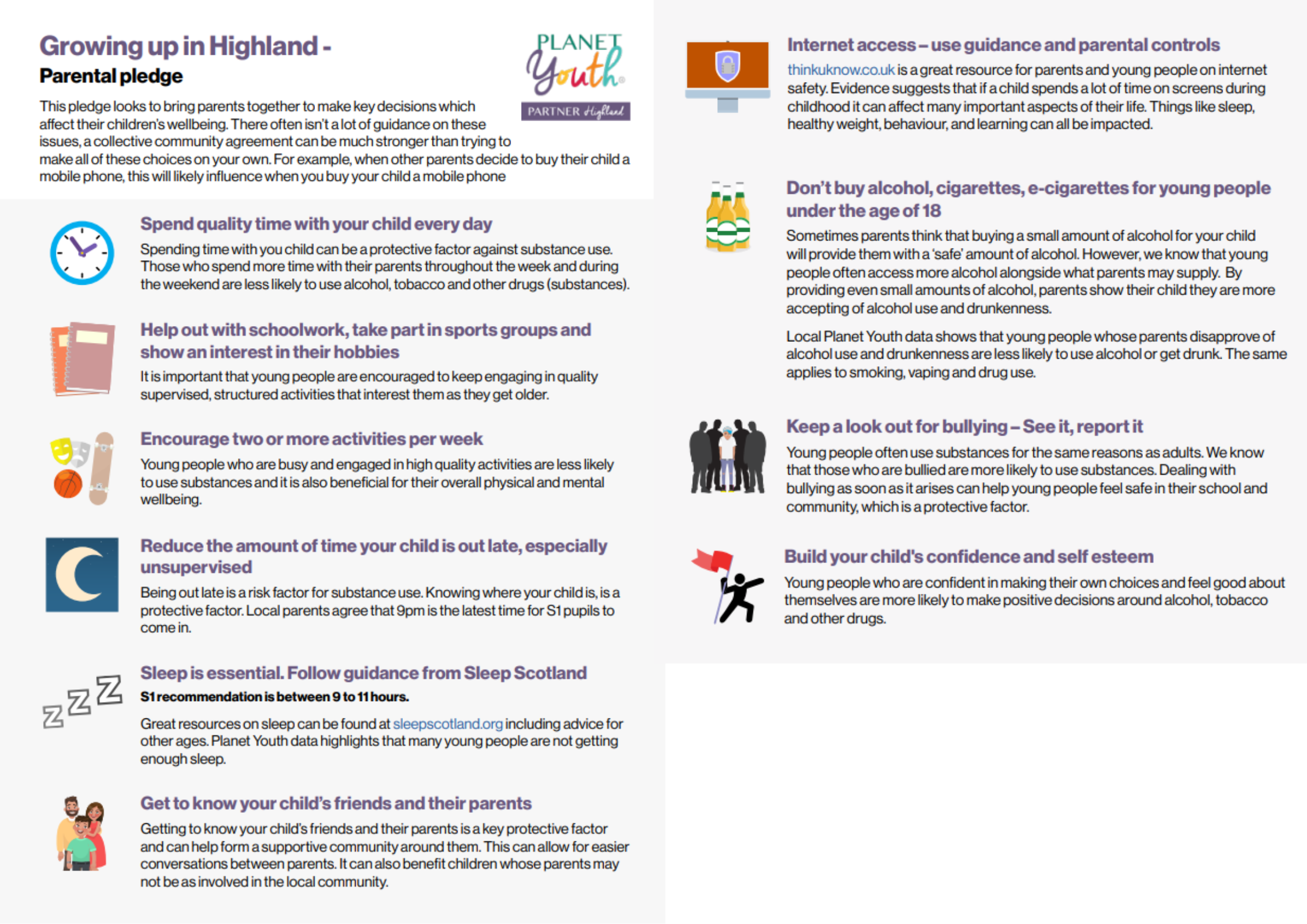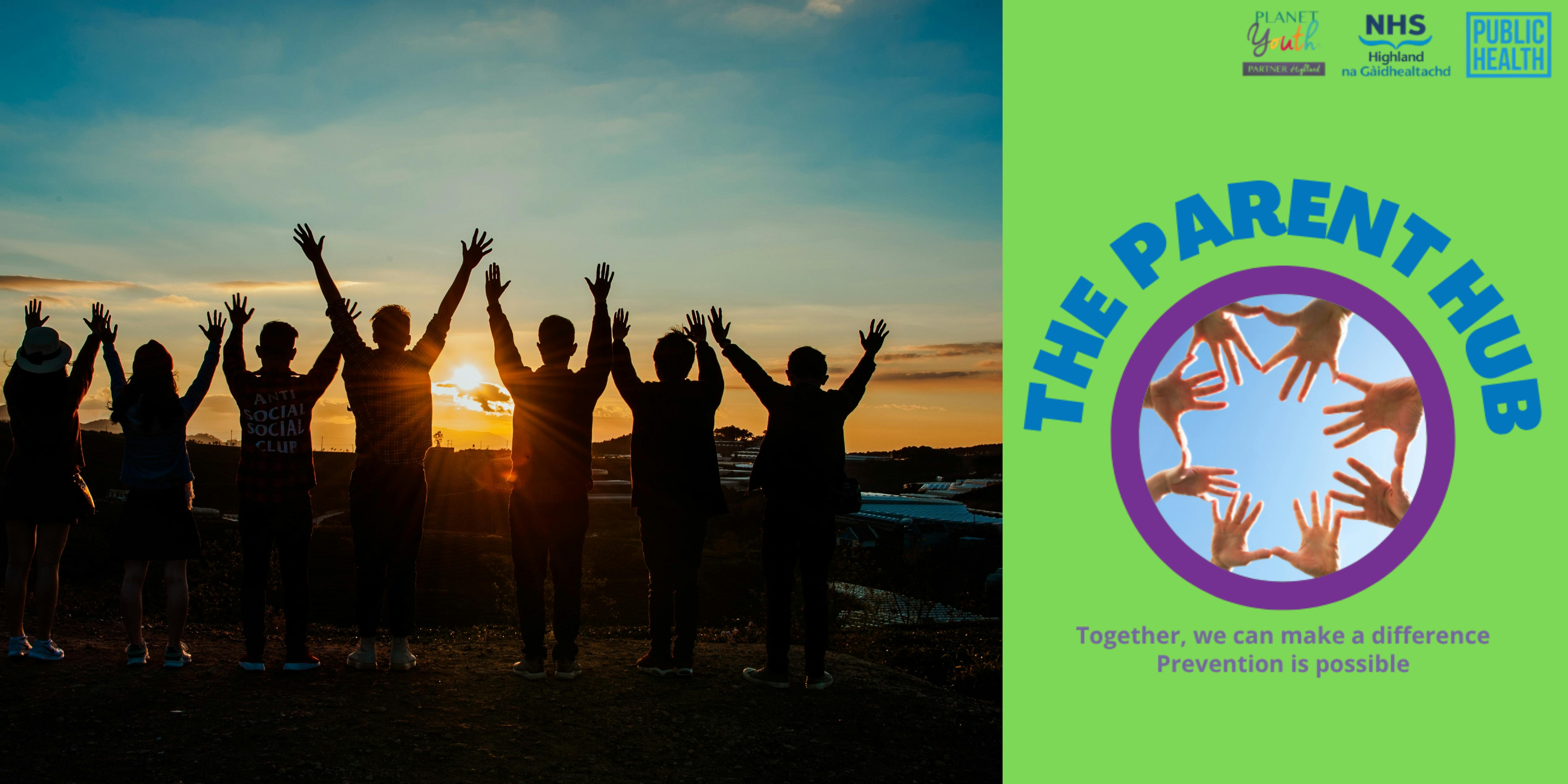What are parental agreements?

When Planet Youth was first developed in Iceland, one of its core strengths was the active involvement of parents and carers. It’s widely recognised that parents and carers are the most influential figures in a young person’s life. But the real power emerged when they came together—not just as individuals, but as a parenting community. This collective approach helped build a shared understanding around boundaries and expectations, which in turn strengthened the protective factors that support young people as they grow into adulthood.
Just as importantly, it created a network of support for parents and carers themselves. Talking to others who are facing similar challenges can offer not only comfort, but also fresh perspectives and practical solutions. After all, parenting is easier—and more effective—when we do it together and support one another.
One of the most effective tools that helped parents and carers build a strong parenting community was the creation of Parental Agreements. Across each school year—from primary through to high school—parents came together to agree on shared boundaries and expectations. These agreements promoted a nurturing, safe environment for all children and families.
It might sound like a big undertaking, but like most meaningful change, it started with small steps.
The first step? Getting to know the other parents in your child’s class or peer group. Of course, that’s easier said than done with the pace of modern life—but we’d love to know: is this something you’d find helpful?
For a starting point you can look at the Parental Agreement that the first Planet Youth Highland Parent Group created in 2021.
What would need to be changed to make this relevant and of use to parents and carers in 2025? Please let us know. You can write your thoughts and ideas in the Ideas tab or just add to the comments box below 👇🏽

Growing up in Highland - Parental pledge
This pledge looks to bring parents together to make key decisions which affect their children’s wellbeing. There often isn’t a lot of guidance on these issues, a collective community agreement can be much stronger than trying to make all of these choices on your own. For example, when other parents decide to buy their child a mobile phone, this will likely influence when you buy your child a mobile phone.
Spend quality time with your child every day. Spending time with you child can be a protective factor against substance use. Those who spend more time with their parents throughout the week and during the weekend are less likely to use alcohol, tobacco and other drugs (substances).
Help out with schoolwork, take part in sports groups and show an interest in their hobbies. It is important that young people are encouraged to keep engaging in quality supervised, structured activities that interest them as they get older.
Encourage two or more activities per week. Young people who are busy and engaged in high quality activities are less likely to use substances and it is also beneficial for their overall physical and mental wellbeing.
Reduce the amount of time your child is out late, especially unsupervised Being out late is a risk factor for substance use. Knowing where your child is, is a protective factor. Local parents agree that 9pm is the latest time for S1 pupils to come in.
Sleep is essential. Follow guidance from Sleep Scotland S1 recommendation is between 9 to 11 hours. Great resources on sleep can be found at sleepscotland.org including advice for other ages. Planet Youth data highlights that many young people are not getting enough sleep.
Get to know your child’s friends and their parents Getting to know your child’s friends and their parents is a key protective factor and can help form a supportive community around them. This can allow for easier conversations between parents. It can also benefit children whose parents may not be as involved in the local community
Internet access. Use guidance and parental controls thinkuknow.co.uk is a great resource for parents and young people on internet safety. Evidence suggests that if a child spends a lot of time on screens during childhood it can affect many important aspects of their life. Things like sleep, healthy weight, behaviour, and learning can all be impacted.
Don’t buy alcohol, cigarettes, e-cigarettes for young people under the age of 18 Sometimes parents think that buying a small amount of alcohol for your child will provide them with a ‘safe’ amount of alcohol. However, we know that young people often access more alcohol alongside what parents may supply. By providing even small amounts of alcohol, parents show their child they are more accepting of alcohol use and drunkenness. Local Planet Youth data shows that young people whose parents disapprove of alcohol use and drunkenness are less likely to use alcohol or get drunk. The same applies to smoking, vaping and drug use.
Keep a look out for bullying. See it, report it Young people often use substances for the same reasons as adults. We know that those who are bullied are more likely to use substances. Dealing with bullying as soon as it arises can help young people feel safe in their school and community, which is a protective factor. Build your child's confidence and self esteem Young people who are confident in making their own choices and feel good about themselves are more likely to make positive decisions around alcohol, tobacco and other drugs.
Build your child's confidence and self esteem Young people who are confident in making their own choices and feel good about themselves are more likely to make positive decisions around alcohol, tobacco and other drugs


Thank you for your contribution!
Help us reach out to more people in the community
Share this with family and friends